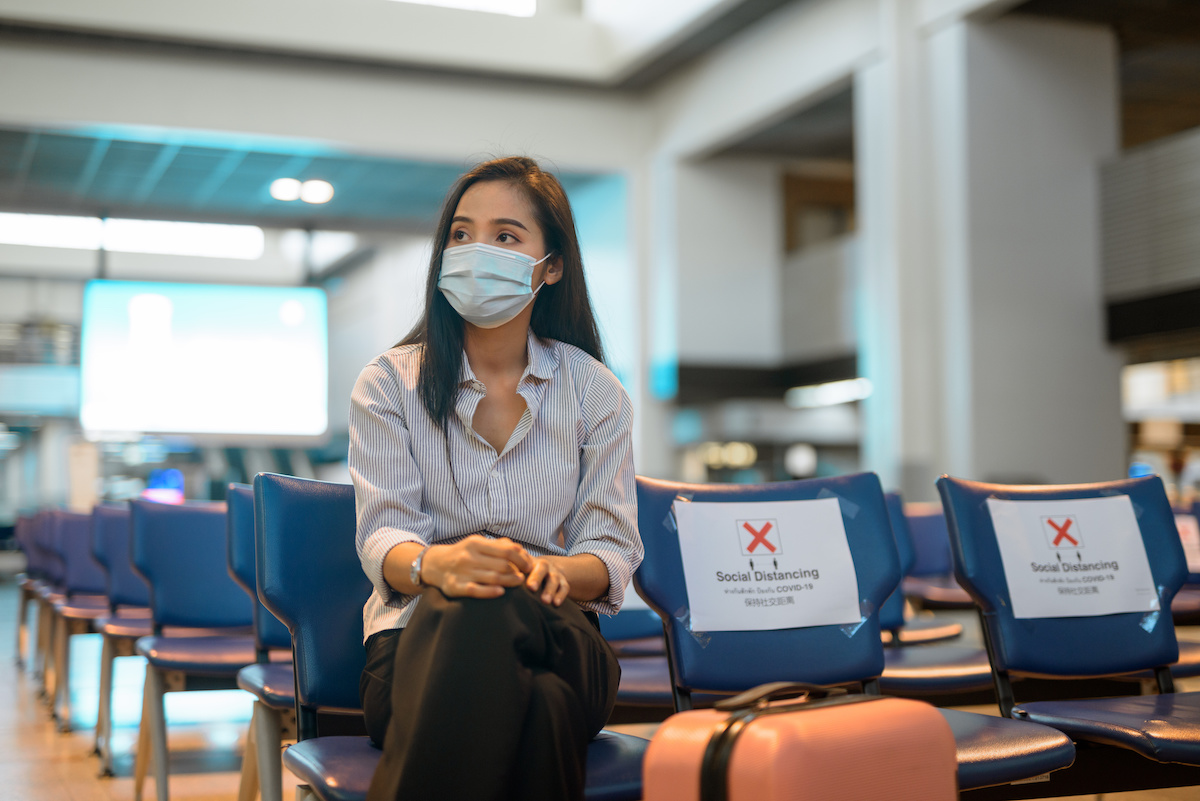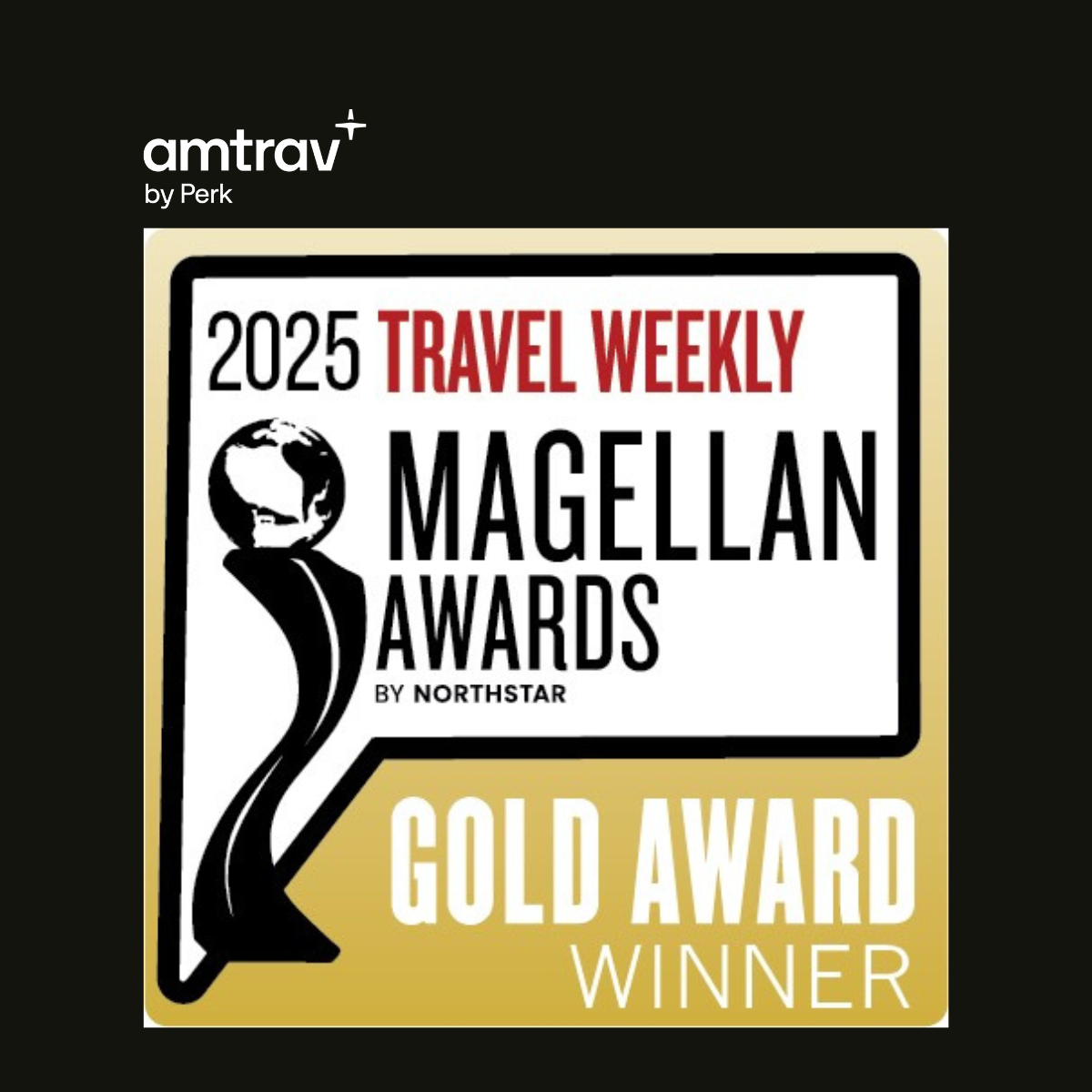If it’s been a while since you’ve traveled, the next time you get back on the road you’ll likely find that things look a lot different than they used to. COVID-19’s impact on travel has been far reaching. So you can avoid surprises, and be prepared for the current “normal”, here is some info on what you can expect.
At the Airport
You'll find the airports less crowded than usual, but that doesn't mean you can arrive later. Shuttles and busses are often running less frequently and have a limited number of seats per ride. At some TSA checkpoints, there are also fewer lanes open.
Speaking of TSA checkpoints, you're now allowed to bring a 12 ounce bottle of hand sanitizer. Another difference is that you'll be asked to scan your own boarding pass instead of handing it to the TSA officer.
There are lots of other changes in the name of safety. Most airports are requiring facial coverings for all employees and travelers. Social distancing is encouraged throughout the process, including security and boarding lines. Most airlines are boarding passengers from the back of the plane to the front (except for First Class travelers who can still board first).
Be prepared to find many of the airport stores and restaurants closed or open for take out only. Most airport lounges have also been closed, although some are starting to re-open now, especially in large hub cities. The ones that are open typically are less crowded than they used to be. They have also changed their food and beverage services, replacing buffet-style food offerings with pre-packaged items and eliminating self-service beverage stands.
On the Plane
While flying, you will be required to wear a mask at all times, except when eating and drinking. Airlines are not offering pillows or blankets anymore, except for some long haul business and first class travelers. Food and beverage service has been reduced, among other reasons so flight attendants don't have to interact with the travelers as much. Really short flights often have no service at all right now. Longer flights might offer something, but food will likely be pre-packaged and provided with a bottle of water as you sit down instead of mid-flight. Many airlines have stopped serving alcohol. If you're flying Business or First Class, the service will likely be closer to normal, but multi-course meals are being replaced with a single tray.
Expect to find a cleaner plane. The airlines are all making great efforts to thoroughly clean and disinfect all heavily touched areas around your seat prior to each flight. Kudos to them for that!
Early in the pandemic, very empty flights were the norm, and you often heard of entire planes with only one or two passengers. That is usually not the case anymore. Although far fewer people are traveling still, most airlines have reduced the number of flights so much that the ones that do operate have a good chance of being reasonably full. Some airlines are blocking middle seats to promote social distancing. Delta has promised to keep middle seats open through September in economy and also keep a seat open in all 2x2 clusters in First class. Southwest is blocking middle seats through October 31st. JetBlue is doing so through September 8th. Alaska, Hawaiian, and Frontier are all limiting total capacity on flights and American and United, while not blocking middle seats, will alert you as you get close to travel if you’re traveling on a full flight. If you are, they’ll give you the option to change to another one for free.
Hotels
Staying at a hotel is a different experience now. For starters, expect to wear a mask in all public parts of the hotel. The staff will be wearing them, too. The lobbies, formerly gathering places, are now typically deserted, save for the masked desk clerks who at many hotels now stand behind plexiglass barriers.
You'll likely find that your hotel has adopted much more stringent cleaning protocols, a good thing. Rooms are cleaned more thoroughly, with disinfectant, and they will seem much emptier. As one of our clients remarked, "When I got into the room, there wasn't a single moveable object there." Books, magazines, pens, paper, and small decorative items have been removed at most properties.
Be prepared for food to be less readily available. There is generally no room service or minibar and many hotel restaurants are open for take out only, if at all. Breakfast buffets have been replaced with baskets of pre-packaged food items. Many hotel guests are finding the best option is to order from DoorDash or another food delivery service, meeting the driver in the lobby.
You likely won't have maid service during your stay, unless you specifically request it. The rooms are cleaned only between guests so that no one will enter your room while you are there. Because of this extra cleaning and the time required for it, early check-ins and late check-outs are harder to come by.
Finally, many typical hotel services are closed or limited. This includes pools, spas, fitness centers, and bellhop/valets. You'll want to check with your specific hotels to learn exactly what is or isn't available.
Rental Cars
The rental car experience has not changed as dramatically as has flying or staying in a hotel. Fortunately, all of the major car rental vendors have greatly enhanced their cleaning practices so unless someone breaks policy, you can count on your car being clean. Hertz now has a 15 step process for cleaning and disinfecting; Enterprise has a 20 point check-list. Just about all the others have something similar.
In the check-out lobbies you will be required to wear a mask, although at some locations, with some vendors, you'll be able to skip the check-in process altogether and go straight to your car.
Ride Sharing
If you’re going to be using a ride sharing service, expect changes there, too.
Uber has a very strict policy: "No Mask, No Ride". You can be sure the driver will also be wearing a mask -- Uber requires them to take a selfie to prove it. Uber has a checklist of requirements for riders. Besides wearing a mask, you must confirm that you’ve recently washed your hands, you must sit in the back seat, and you must open the windows for ventilation. The maximum number of riders per car is 3 now -- it used to be 4.
Lyft is still operating in North America but has temporarily suspended operations everywhere else. Like Uber, they require you to wear a mask and you can expect your driver to do the same. Drivers will not help with your luggage and it is recommended that windows be kept open during the drive. Riders are not allowed to ride in the front seat.
Possible Quarantines
One last potential huge difference in traveling now vs. traveling before COVID: depending on where you’re traveling to, you may need to quarantine for up to 14 days upon arrival and/or have a negative COVID test for entry. The policies of various states and countries are changing rapidly, but we’ve created this guide to keep you up to date. Be sure to double check your itinerary before leaving to make sure you can account for whatever requirements may apply.

Cassie Sclafani




